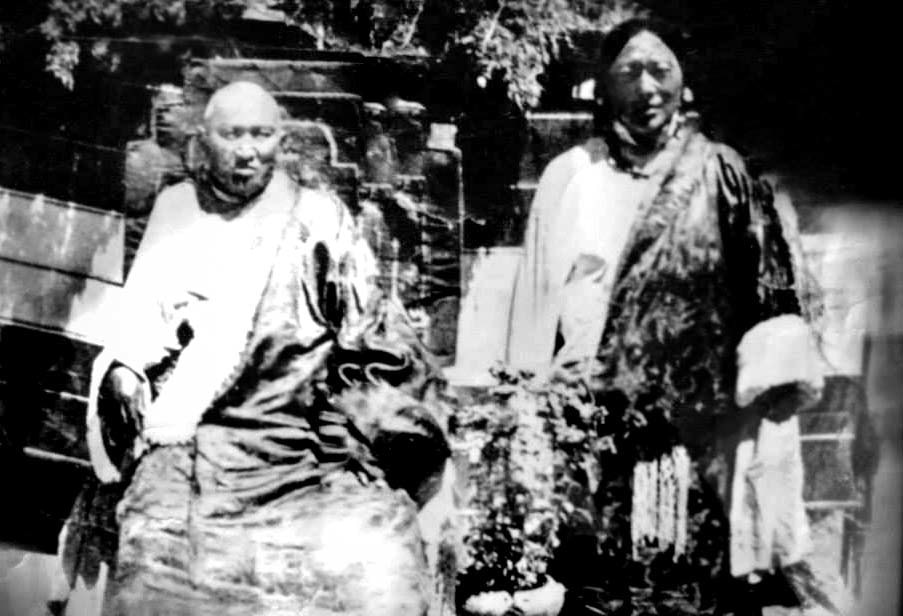- Welcome
- Short Biography of HH the 16th Karmapa
-
Words of His Holiness
- Prophecies >
- Vajrasongs >
- Interview 1980
- Long-life prayers by HH the 16th Gyalwa Karmapa
- Western Visitor's Interview
- Letter to European Disciples 1978
- Words of His Holiness the 16th Karmapa: From Social Media, Part One
- Guidelines for Buddhist Studies in the Karma Kagyu School
- Compassion -- the Language of the Bodhisattva
- A book about HH the 16th Gyalwa Karmapa
- Extracts from Radiant Compassion
- Who's the Karmapa?
- Press articles about HH the 16th Karmapa
- Videos
- background
- bibliography
- background informations
- mistakes and modifications
- links
- about the author
- contact, disclaimer, copyright
- Dana - Donations
- Acknowledgements
- Feedback and Reviews
- sitemap
- additional interviews and accounts
- the latest posts
- Victory banner of the Dharma
- Towards Illumination
- Interview with HH the 16th Karmapa, New York City 1980.
- Letter to Prime Minister Nehru
- Bookorders Volume One and Two
- Account of Kenneth Green
From Chapter One
The Birth of a Buddha
In 1923, not even two years after the parinirvāṇa of the 15th Gyalwa Karmapa Khakhyab Dorje, the abbot of Dzogchen monastery, Rinpoche Tsewang Norbu, visited a couple who were highly regarded throughout all of Derge province in eastern Tibet. Päldjor Tsewang Norbu, himself a Lama, was a minister in the King of Derge’s cabinet and his wife Kaltsang Chödän was considered a worldly dākinī.* Dzogchen Rinpoche was the couple’s root lama,* and when he arrived at their lordly dwelling in Denkhok, they welcomed him with full honors and the highest Tibetan etiquette.
After he was entertained and worldly and spiritual advice were requested, Dzogchen Rinpoche astonished the couple by announcing that they would soon be the parents of a great bodhisattva.* Shortly following the abbot’s visit, they noticed joyfully that Kaltsang Chödän was indeed pregnant. The pregnancy went smoothly and as happens with many mothers who are carrying highly realized masters, wondrous occurrences transpired. People recount to this day that already in his mother’s womb the son recited ‘Om Mani Peme Hung,’ the popular mantra of Avalokiteśvara. Kaltsang Chödän had remarkable dreams, one of which she saw the Black Crown of the Karmapas.[1] The couple began to anticipate who the ‘great Bodhisattva’ that Dzogchen Rinpoche had predicted might be...
Since he was such an uncommon child, Dzogchen Rinpoche advised Kaltsang Chödän to go into retreat during her pregnancy and to give birth not in the Athub palace but in a cave of Padmasambhava, the Lion’s Sky Castle, which was not far away. Padmasambhava* had practiced there in the 8th century, profoundly blessing the place. Thus, as the birth approached, Kaltsang Chödän and Päldjor Tsewang built a large tent in the flower meadow in front of the holy cave.[2]
(…)
At dusk on July 16th 1924[3] the 16th Gyalwa Karmapa Rangjung Rigpe Dorje was born,* the event being accompanied by numerous auspicious signs typical for the birth of a great master. Rainbows appeared in the blue sky; soft rain showered down, and some saw a rain of flowers; the earth trembled softly and the water in the tent’s offering bowls turned into milk. Neither the pregnancy nor the birth itself had caused the mother any pain. Like many of his previous incarnations, according to the legend, Karmapa walked seven steps in every direction. Proclaiming “Mother, I will not stay,” he announced his fearless character, that of a great Bodhisattva.
read more
- Welcome
- Short Biography of HH the 16th Karmapa
-
Words of His Holiness
- Prophecies >
- Vajrasongs >
- Interview 1980
- Long-life prayers by HH the 16th Gyalwa Karmapa
- Western Visitor's Interview
- Letter to European Disciples 1978
- Words of His Holiness the 16th Karmapa: From Social Media, Part One
- Guidelines for Buddhist Studies in the Karma Kagyu School
- Compassion -- the Language of the Bodhisattva
- A book about HH the 16th Gyalwa Karmapa
- Extracts from Radiant Compassion
- Who's the Karmapa?
- Press articles about HH the 16th Karmapa
- Videos
- background
- bibliography
- background informations
- mistakes and modifications
- links
- about the author
- contact, disclaimer, copyright
- Dana - Donations
- Acknowledgements
- Feedback and Reviews
- sitemap
- additional interviews and accounts
- the latest posts
- Victory banner of the Dharma
- Towards Illumination
- Interview with HH the 16th Karmapa, New York City 1980.
- Letter to Prime Minister Nehru
- Bookorders Volume One and Two
- Account of Kenneth Green

